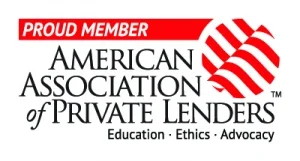Securing a down payment is one of the primary challenges when purchasing an investment property. This article explores various strategies to obtain the funds needed for a down payment, ensuring you can seize investment opportunities and expand your real estate portfolio.
Savings and Budgeting
Personal Savings
Using personal savings is the most straightforward way to fund your down payment:
- Consistent Saving: Set aside a fixed amount from your monthly income.
- High-Yield Savings Accounts: Use accounts that offer higher interest rates to grow your savings faster.
Budgeting
Effective budgeting can help you accumulate the necessary funds:
- Track Expenses: Monitor and reduce discretionary spending.
- Set Goals: Establish clear savings goals and timelines.
Retirement Accounts
Borrow from 401(k)
Many 401(k) plans allow you to borrow against your balance:
- Loan Limits: Typically, you can borrow up to 50% of your vested balance or $50,000, whichever is less.
- Repayment Terms: Loans must be repaid within five years, with interest.
Use a Self-Directed IRA
A self-directed IRA allows for real estate investments:
- Rules and Regulations: Ensure compliance with IRS regulations to avoid penalties.
- Benefits: Potential for higher returns compared to traditional investments.
Home Equity
Home Equity Loan or Line of Credit (HELOC)
If you own a home, you can tap into its equity:
- Home Equity Loan: Provides a lump sum, with fixed interest rates and repayment terms.
- HELOC: Functions like a credit line, allowing you to borrow as needed, usually with variable interest rates.
Partnerships and Joint Ventures
Real Estate Partnerships
Partnering with other investors can help you pool resources:
- Equity Sharing: Each partner contributes a portion of the down payment in exchange for a share of the profits.
- Clear Agreements: Draft detailed partnership agreements to outline terms and responsibilities.
Joint Ventures
A joint venture with an experienced investor can provide the necessary funds:
- Experience and Resources: Leverage the partner’s experience and financial resources.
- Profit Sharing: Agree on a profit-sharing arrangement that benefits both parties.
Private Loans and Hard Money Lenders
Private Loans
Borrowing from family or friends can be an option:
- Clear Terms: Ensure all loan terms are documented to avoid misunderstandings.
- Repayment Plan: Establish a clear repayment plan to maintain good relationships.
Hard Money Loans
Hard money lenders offer short-term loans based on the property’s value:
- High Interest Rates: Typically higher than traditional loans, reflecting the increased risk.
- Quick Access: Fast approval and funding, useful for time-sensitive investments.
Government and Non-Profit Programs
Government Grants and Loans
Some government programs offer assistance for real estate investors:
- Local Programs: Check with local housing authorities for grants or low-interest loans.
- Federal Programs: Explore federal programs like the SBA 504 loan for commercial real estate.
Non-Profit Organizations
Certain non-profits offer grants or loans to support real estate investments:
- Research: Look for organizations that support affordable housing or community development projects.
Seller Financing
Negotiating Seller Financing
Seller financing allows the seller to finance the purchase:
- Down Payment Terms: Negotiate favorable down payment terms directly with the seller.
- Flexible Agreements: Create tailored agreements that benefit both parties.
Crowdfunding and Syndication
Real Estate Crowdfunding
Platforms allow multiple investors to pool funds for property investments:
- Small Contributions: Investors can contribute smaller amounts to participate in larger deals.
- Diversification: Opportunity to invest in multiple properties.
Syndication
Syndication involves pooling funds from multiple investors to purchase properties:
- Syndicator Role: A syndicator manages the investment and property.
- Investor Contributions: Each investor provides a portion of the down payment and shares in the profits.
Conclusion
Securing a down payment for an investment property requires strategic planning and leveraging various financial resources. By exploring options such as savings, retirement accounts, home equity, partnerships, and alternative financing, you can gather the necessary funds to make your investment dreams a reality. Understanding these methods and choosing the ones that best suit your financial situation can help you successfully enter the real estate investment market.


